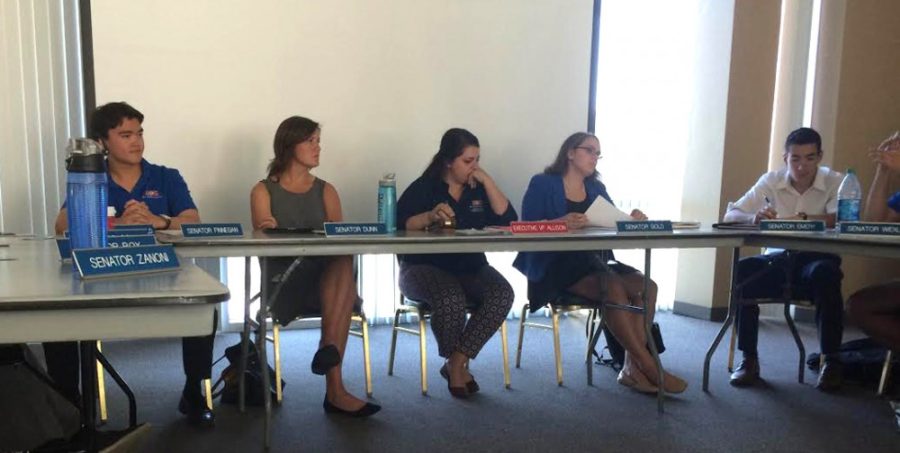ASUA senators prepared for next year’s senate class by discussing state budget cuts, senators’ 2015-2016 workload and stipends.
Current senators receive $1,200 in pay for their positions, which is taken out of the Associated Students of the University of Arizona’s overall budget.
ASUA Sen. Joshua Wexler said he thinks the senate should consider lowering the stipend because it seems like there’s a lack of “real responsibilities.” He said it’s hard to justify $1,200 when there are limited defined expectations for senators to meet.
If stipends are lowered, ASUA Sen. Brooke Serack said they should also consider lowering the number of office hours.
Senators are required to complete 10 office hours and five out-of-office hours each week. However, there is no official way of tracking if senators complete these hours or what work they accomplish.
ASUA Sen. Jack Emery said there is a discrepancy in the amount of responsibility taken and how much senators are paid.
ASUA Sen. Joe Zanoni argued that holding this position keeps people from other jobs, and he urged senators to be cautious when talking about decreasing stipends.
Worried about how people already view the student government, ASUA Sen. Trey Cox warned that lowering stipends will only defend the arguments that senate doesn’t do work and will devalue the position.
Senate stipends have decreased $300 in the last 10 years, according to ASUA Executive Vice President Jordan Allison.
“It’s really not okay for us to be using dollars to pay salaries for people who aren’t working for the students,” said ASUA Sen. Elena Gold, who said she thinks the reason stipends have decreased is because people get elected and don’t do anything throughout the year.
ASUA Sen. Brian Seastone said that senators should not focus on putting a monetary value on the work they do. He joked that if they did, then ASUA President Issac Ortega would make somewhere near 15 cents per hour of work. He reminded senators that they aren’t doing this for money but for the work going toward helping ASUA and students around campus.
Personal accountability was brought up by Seastone, who believes that they don’t have to stop at 10 office hours -— that they can exceed that amount. He ended by saying that no one is trying to live off of their senate stipend.
“I only found out about the stipend once I was elected,” said Wexler, who thinks that in light of statewide budget cuts, it would be a strong step as representative body of students to say they’re taking the cuts along with the rest of the student body.
With the senate divided on how much of a stipend to award next year’s senate class, Ortega said that one of the main purposes of stipends is to balance out the time commitment the job requires. He thinks that, as school becomes more expensive, he’d love to see ASUA become stable and incrementally increase stipends.
Next week, the ASUA senate will vote on the next senate class’ stipend.
_______________
Follow Chastity Laskey on Twitter.









